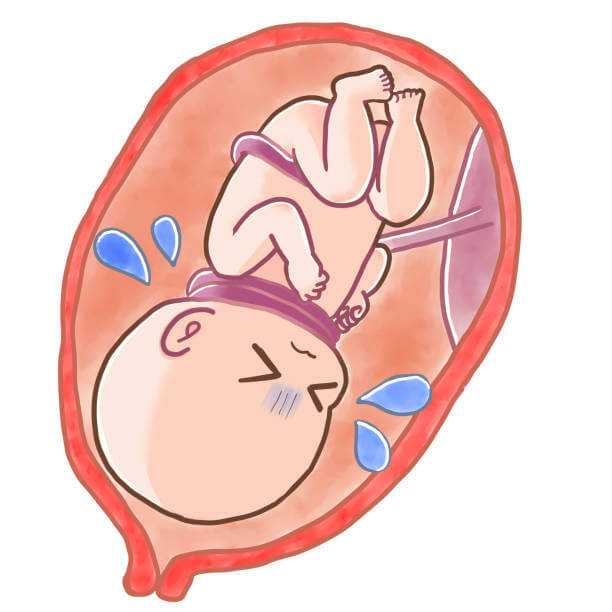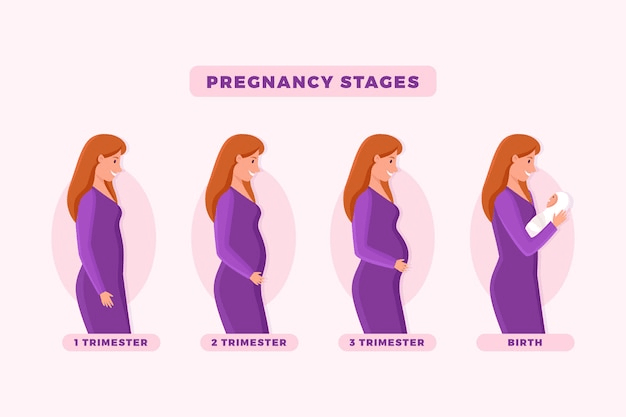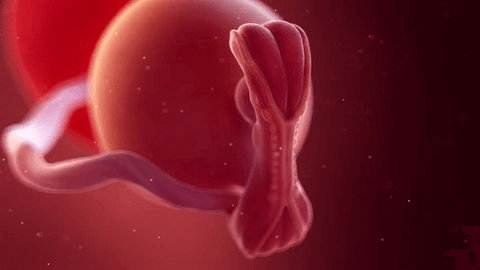Pregnancy Weeks 1 to 4: Understanding the Early Stages

Navigating the Early Stages: Pregnancy Weeks 1 to 4 Explained
Your Baby’s Development
The Journey Begins: Conception and Fertilization
Your pregnancy technically starts from the first day of your last menstrual period, even before conception occurs. Once the sperm fertilizes the egg, a series of remarkable changes begin.
First Steps: The Fertilized Egg’s Journey
In the first few days post-conception, the fertilized egg, or zygote, begins dividing rapidly while traveling down the fallopian tube towards the uterus. By the end of week four, the now multi-cellular structure, known as a blastocyst, implants itself into the uterine lining. This critical process marks the start of your embryo’s development.
Blastocyst Development
By this time, the blastocyst is about 0.2mm wide and contains approximately 200 cells. These cells are divided into three distinct layers, each destined to form different parts of the baby’s body:
- Outer Layer: This will develop into the nervous system and brain.
- Middle Layer: This forms the heart, blood vessels, muscles, and bones.
- Inner Layer: This layer will become the respiratory and digestive systems.
Establishing the Placenta
At this early stage, tiny projections called chorionic villi extend from the blastocyst to establish connections with your blood supply. These villi will eventually develop into the placenta, a crucial organ that will provide oxygen and nutrients to your baby throughout the pregnancy.
Also read: Earliest Signs And Symptoms Of Pregnancy
Your Body’s Transformation
Early Signs: Recognizing Pregnancy
In the first four weeks, you might not notice any significant changes. However, the absence of your menstrual period at the end of week four could be a clear indication. Missing a period can bring a mix of emotions, from joy and excitement to anxiety and fear. It’s important to recognize that these feelings are entirely normal.
Hormonal Shifts
From the moment of conception, your hormone levels begin to shift dramatically. The hormone progesterone increases to prevent menstruation, and human chorionic gonadotropin (hCG) levels rise, which is what pregnancy tests detect.
Things to Keep in Mind
Preconception Health
Ensuring a healthy start for your baby begins even before conception. Here are some key steps to take:
- Folate Intake: If you’re planning to conceive, it’s advisable to take 400 micrograms of folate daily. This helps prevent neural tube defects such as spina bifida.
- Medical Consultations: Consider visiting your doctor for genetic screening or tests for sexually transmitted infections before getting pregnant.
- Healthy Lifestyle Choices: Maintain a balanced diet, exercise regularly, avoid alcohol, and quit smoking to promote a healthy pregnancy.
Conclusion
The first few weeks of pregnancy set the stage for your baby’s development and your body’s transformation. While the physical signs may not be immediately noticeable, the hormonal changes are already in motion, paving the way for a healthy pregnancy. Embrace this journey with informed choices and a supportive approach to your well-being.
FAQs
1. When does pregnancy actually start?
Pregnancy is calculated from the first day of your last menstrual period, even before conception.
2. What changes occur in the first four weeks of pregnancy?
The fertilized egg travels to the uterus and implants itself, starting to develop into a blastocyst with distinct cell layers that will form the baby’s body.
3. How can I tell if I’m pregnant in the first month?
A missed period at the end of week four is a common early sign. Hormonal changes are already underway, though you might not notice them immediately.
4. What should I do to ensure a healthy pregnancy?
Take 400 micrograms of folate daily, consider preconception medical consultations, eat healthily, exercise, avoid alcohol, and quit smoking.
5. Why is folate important before and during pregnancy?
Folate helps prevent neural tube defects, such as spina bifida, ensuring the best possible start for your baby’s development.
Also read: Unusual Early Pregnancy Symptoms: A Comprehensive Checklist






